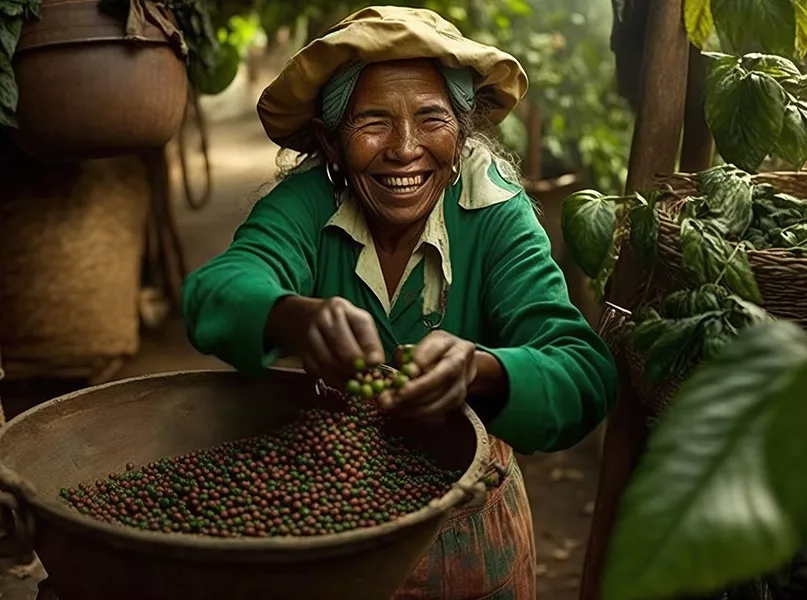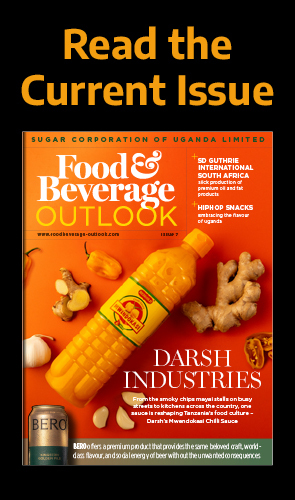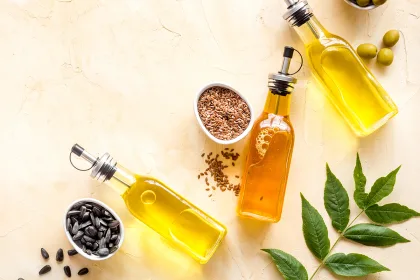Global coffee producers are facing environmental and economic turmoil. In the face of this adversity, we unearth how Indonesia’s farmers are coping with the perilous impacts of climate change.
Historically, Indonesia is one of the largest producers of coffee in the world, with mass cultivation beginning in the late 1600s and early 1700s across the nation. It is an industry which has played an integral role in the growth of the country and to this day, coffee continues to fly high as one of the most heavily traded commodities on Earth.
Geographically and climatologically well-suited for coffee plantations, Indonesia is situated in close proximity to the equator, possessing numerous mountainous regions on its main islands that birth the ideal microclimates for the growth, mass production and global exportation of coffee. Indonesia’s coffee industry has ushered in numerous benefits for the nation, such as creating vast employment opportunities, generating immense national income, and alleviating poverty in rural communities.
Today, more than 90 percent of Indonesia’s coffee is grown by smallholders, defined as mini farms operating under a small-scale agriculture model, often averaging around one hectare of land. Some of this production is carried out organically and many farmers’ cooperatives and exporters have achieved the status of international certification to market organic coffee.
Furthermore, growers in Indonesia face many challenges in meeting and maintaining export standards for the maximum number of pesticides used in coffee, and are facing a bruising battle ahead in coping with the brutal impact of climate change on their crop yield.
EVALUATING THE EFFECTS OF PESTICIDE
Adopting innovative and best agricultural practices alongside using reductants can help to ensure the long-term sustainability of coffee production. Similarly, the responsible use of pesticides holds the key to helping Indonesia’s smallholders maintain yield and meet pesticide guidelines, which opens the door to access foreign markets. A maximum residue level (MRL) is the highest concentration of a pesticide residue in or on food or feed of plant and animal origin that is legally tolerated for safe consumption and distribution.
To maintain consistent and profitable yield and quality, Indonesia’s farmers often use chemicals such as pesticides to protect coffee plants from the threat of insects, pests, and harmful weeds. However, pesticide residue can contaminate the ground and the beans themselves, potentially even causing rashes, nausea and other diseases in the long term.
Elsewhere, pesticides also threaten plants, animals and insects and can contaminate waterways, directly affecting fish or destroying their natural food sources. This method of farming can also harm or disrupt the ecosystem of microorganisms and non-target organisms that exist in the soil.
Pesticides used in the farming of cruciferous vegetables have been scientifically linked to a significant decline in soil arthropods, the organisms that play a vital role as decomposers and predators of other pests. The fear is that a decrease in these soil arthropods will eventually lead to a reduction in overall biodiversity and upset the soil’s natural balance on coffee plantations.

ENCOURAGING SUSTAINABLE FARMING
Aiming to ensure the long-term sustainability of their coffee production and maintain access to foreign markets, Indonesia’s smallholders are endeavouring to utilise responsible pesticide use on their farms.
Besides using reductants, the farmers remain in the process of adopting integrated pest management, a holistic production method that involves utilising multiple strategies such as crop diversification, biological agents to control pests, and the strategically targeted use of pesticides.
Another safe and sustainable approach being employed is to embrace crop rotation, which helps break the pest and disease cycle, improving soil health and reducing the need for pesticides. Additionally, growing coffee under a shaded canopy of surrounding trees creates a conducive habitat for insects and birds, whilst crucially also keeping harmful pests at bay.
Coffee growers in the region also benefit from enhanced training and education on new, sustainable farming methods. These farmers must understand when and how to apply pesticides, as adding the right type of chemicals at the right time can still reduce harm to crops. When coffee is in bloom, the general consensus is that growers must avoid using insecticides as much as possible.
ECO-FRIENDLY COFFEE CULTIVATION
Across Indonesia, companies such as Pandawa Agri have begun educating farmers on the damaging effects of pesticides on their coffee plants and offering alternative solutions for healthier farming methods. The company has also established a smallholder ecosystem in Pagar Alam, South Sumatra, where it aids farmers in the adoption of sustainable and safe practices in using pesticides to meet export standards.
Pandawa Agri provides a range of comprehensive solutions, from assistantship to complete agricultural input, by supplying natural boosters to help plants more efficiently absorb nutrients and water, and fertilisers to increase nitrogen in the soil and aid in the flowering process of coffee plants.
In addition, Pandawa Agri’s team assists with field monitoring, advises farmers on the correct application of agricultural agents, and monitors crops for any signs of disease or pest attacks up until they are harvested.
Parallel to this, the Indonesian government is adopting a multifaceted approach to reduce the inclusion of pesticides in coffee and other similar commodities. This includes the introduction of several fresh initiatives such as teaching farmers sustainable agricultural techniques, developing new pest management methods, and rolling out certification programmes such as the Rainforest Alliance and Fairtrade, which encourage farmers to instead favour the use of alternatives to pesticides.
By working with both the private and government sectors, promoting sustainable farming practices and investing in innovative research, Indonesia is taking important steps to ensure the long-term sustainability of its agriculture and coffee farming industry.





















